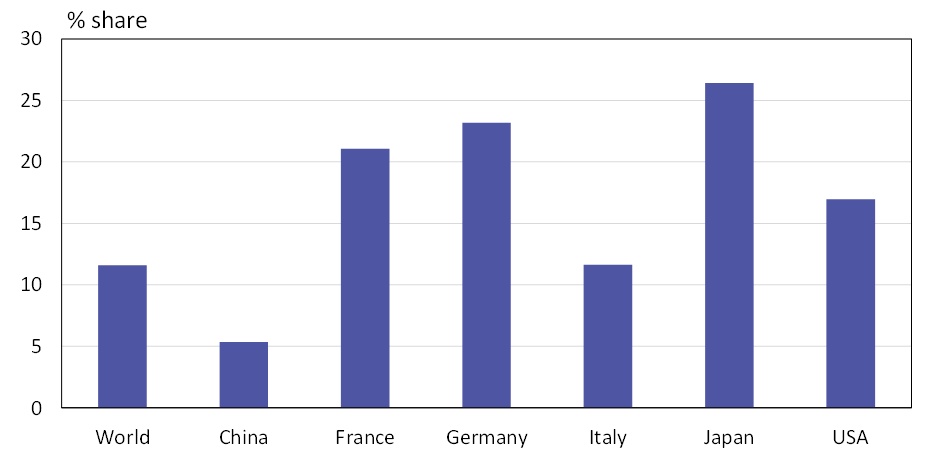BOFIT Weekly Review 18/2020
China continues to support NEV manufacture and sales as part of corona stimulus
Car sales in China, which were already declining last year, plunged with the emergence of the coronavirus epidemic. The China Association of Automobile Manufacturers (CAAM) reports that both car production and car sales declined by about 80 % y-o-y in February. Although the lock-in-restrictions and factory close downs were released in March and car production was restarted, both production and sales were still down by over 40 % from March 2019. As part of the stimulus arrangement, the government extended subsidies on production of new energy vehicles (NEVs) to 2023. The NEV subsidies were originally set to expire this year.
While China is both the world’s largest car producer and the world’s largest market for car sales (including NEVs), Chinese cars have not yet found much demand outside China. Of China’s production of about 25 million cars a year, just over 1 million are exported, with most of those going to developing countries or other emerging economies. Chinese consumers themselves prefer foreign makes which in total account for about 60 % of car sales. Volkswagen, the most popular make in China, accounts for about 15 % of all sales. All of the world’s largest car manufacturers have plants in China.
China has relied on knowledge transfers from abroad to develop its domestic car industry. Often the proprietary skills and knowledge have been gained through acquisition (e.g. Volvo) and by forcing foreign manufacturers into joint ventures with domestic manufacturers. In spring 2018, the government announced plans to phase out gradually its joint venture requirement. A change governing the NEV industry was implemented already the same year, allowing Tesla to break ground on its new plant in Shanghai in 2018. Tesla launched production at the facility last year. NEVs are also part of the “Made in China 2025” programme, which seeks to develop China’s manufacturing presence in emerging high-tech fields. The China’s investment in production of domestic electric and hybrid vehicles is expected to improve the image of Chinese cars at home and abroad –and hopefully make China a major NEV exporter. China’s M-Byte all-electric SUV will hit markets in the west late this year. In a fairly short period, China has also become a leading manufacturer of lithium batteries for electric vehicles.
Vehicles as a share of the value of goods exports to select countries, 2018

Sources: WTO and BOFIT.